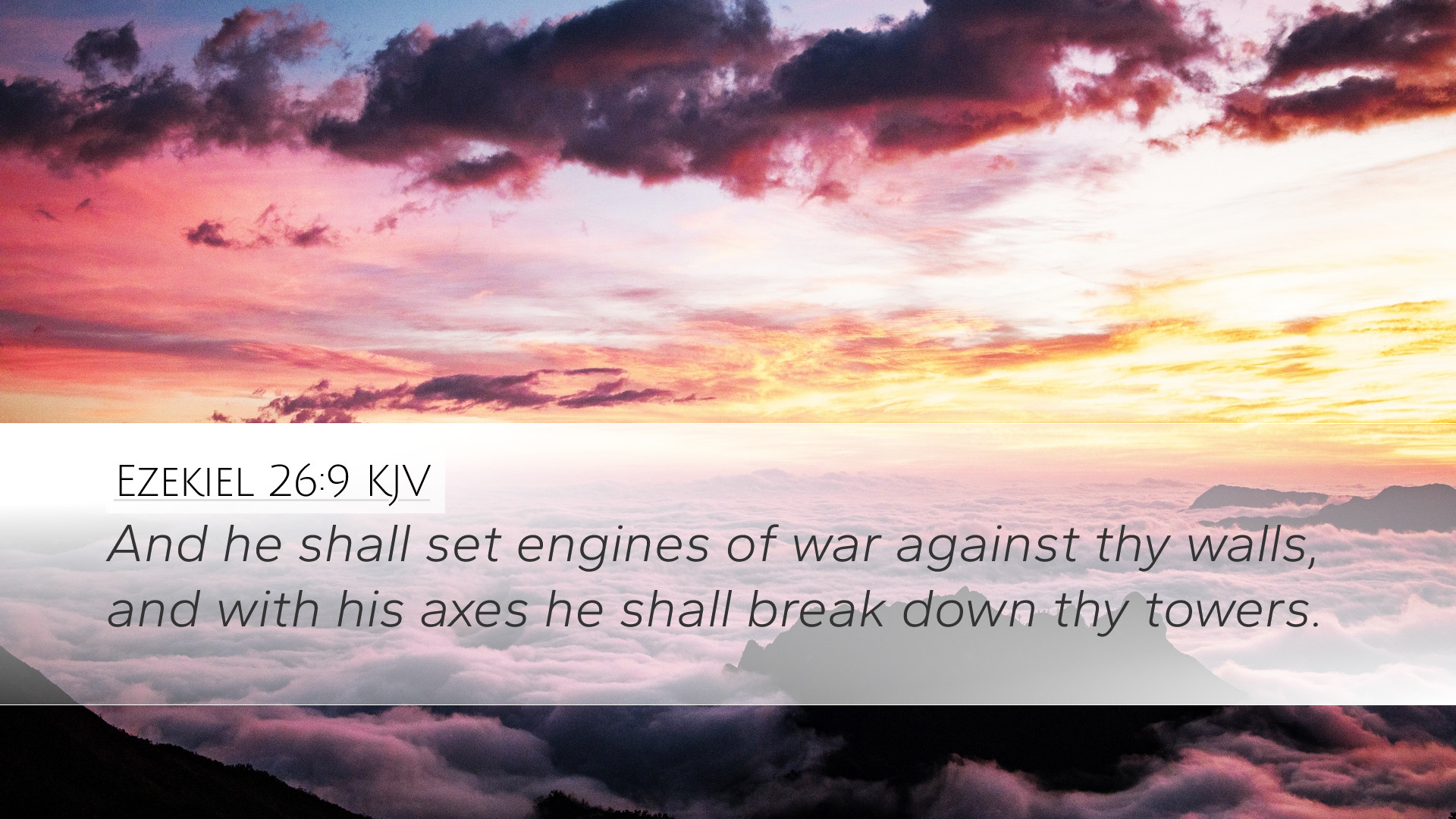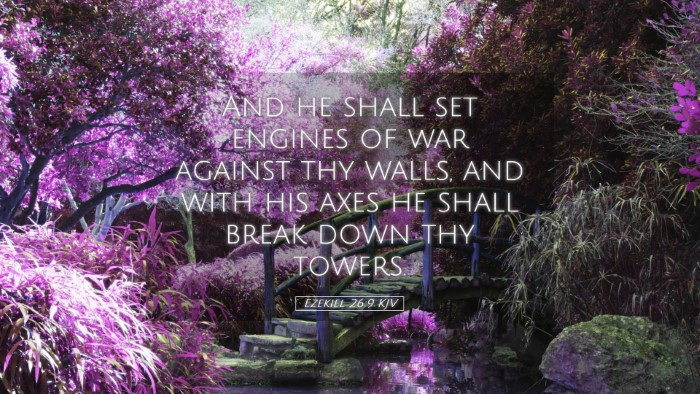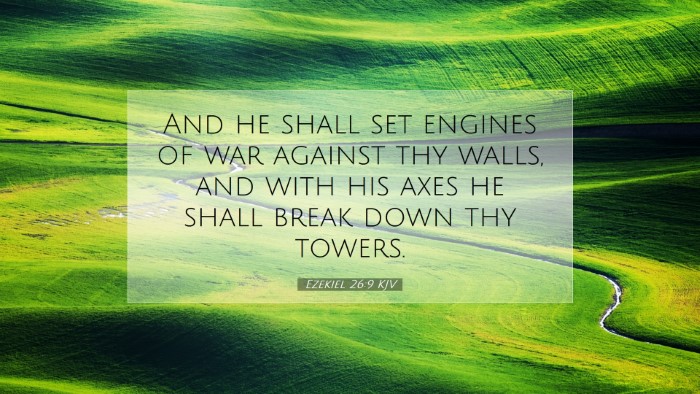Bible Commentary on Ezekiel 26:9
Ezekiel 26:9 (ESV): "He shall direct the bolts of your walls, and he shall tear down your towers."
Introduction
The prophecy in Ezekiel 26:9 conveys a significant message regarding the impending judgment on Tyre. This chapter describes the fate of a city renowned for its wealth and pride. Various commentaries emphasize the implications of this verse for understanding God's sovereignty and justice.
Context of Ezekiel 26
The backdrop for Ezekiel's prophecy is the siege of Tyre that is to come. Tyre was a powerful city, both economically and militarily, representing opposition to God’s people, Israel. Understanding Tyre’s role in the ancient Near East helps illuminate the depth of the judgment being pronounced.
Historical Setting
Tyre was located on the Mediterranean coast and was known for its commercial wealth and easy access to trade routes. Its influence extended beyond commerce; it was also a center for idolatry, which contributed to its eventual downfall.
Commentary Insights
Matthew Henry
Matthew Henry points out that the destruction of Tyre serves as a testament to divine justice. His commentary highlights that the siege and subsequent destruction would be methodical—a direct blow to the pride of Tyre. The "bolts of your walls" relate symbolically to the strength and security that the city once enjoyed. The tearing down of towers signifies that even the tallest fortifications cannot withstand the judgment of God. Henry stresses that this destruction should serve as a warning to all nations about the consequences of defying divine authority.
Albert Barnes
Albert Barnes elaborates on the imagery presented in the verse. He interprets “He shall direct the bolts of your walls” as God orchestrating the fall of Tyre through human agents. This highlights the theme of divine providence, where God uses nations as instruments of His judgment. Furthermore, Barnes notes that the tearing down of towers connotes the complete collapse of the city’s power and glory. He urges theologians to reflect on the transitory nature of human pride and the inevitability of divine retribution against it.
Adam Clarke
Adam Clarke provides a detailed breakdown of the phraseology used in Ezekiel 26:9. He remarks on the use of "direct" and "tear down," indicating a strong and purposeful action. Clarke emphasizes that the prophecy not only speaks to the physical destruction of Tyre but also suggests a profound spiritual lesson about reliance on worldly fortifications that ultimately fail. Clarke’s insights draw attention to the timeless principle that the security built on human strength is futile in the face of divine judgment.
Theological Implications
The theological themes embedded within Ezekiel 26:9 are powerful. Scholars and theologians can engage with concepts such as:
- Divine Justice: The certainty of God's judgment upon nations and individuals who stand opposed to His will.
- Human Pride and Fallibility: The transient nature of human pride and the folly of securing oneself against God's purposes.
- God’s Sovereignty: The understanding that God orchestrates history and employs human agents to fulfill His divine plans.
Practical Application
This verse provides ample material for pastoral reflection and teaching:
- Confronting Pride: Pastors can encourage congregations to self-examine areas where pride might lead to downfall.
- Dependence on God: Emphasizing the importance of reliance on God rather than human strength or resources.
- Hope in Judgment: Understanding that God's judgments, while severe, often serve to redirect people back to Him.
Conclusion
Ezekiel 26:9 stands as a stark reminder of the power and sovereignty of God in the affairs of mankind. By synthesizing the insights from Matthew Henry, Albert Barnes, and Adam Clarke, one can appreciate the multifaceted layers of meaning contained within this brief but profound verse. For pastors, theology students, and scholars, this becomes an opportunity to engage with themes of judgment, sovereignty, and human folly in light of God's eternal purpose.


